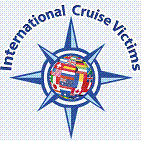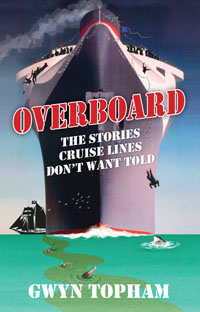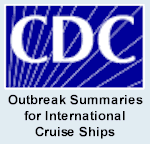Christina Marie Ricci
Victims Helping Victims
Together We Are Making A Difference
Partners
Things
You Should Know
Before
You Leave Port
Read
Don't Snooze Before You Cruise
Read
I Just Cant
Christina Marie Ricci
3/27/1991 9/30/2015
By Lisa Ricci, Christina’s mother
On September 10, 2015, my precious 24 year old daughter Christina Ricci boarded the Carnival Victory cruise ship for a four day vacation in Mexico with her boyfriend .
At 7 a.m. the next day, her boyfriend called us, her parents, alerting us that our precious daughter was unconscious and failing.
The year before, they had gone on a Carnival cruise to the Bahamas without incident. This trip proved fatal for her.
Before her last voyage, excited about the upcoming trip, Christina posted pictures of herself on Facebook, smiling her beautiful smile and flashing her sparkly eyes for what none of us realized would be the last time.
Christina was devoted to her job working with adolescent psychiatric patients at a state hospital. On her own time, she painted, read avidly, and did creative writing. She was also very close to her family.
Christina collapsed just eight hours after the cruise began as her boyfriend and she were heading to their cabin. She should have been flown by helicopter to a fully equipped hospital immediately, but instead the ship’s medical staff stood by and watched her condition get worse by the minute.
I later learned that in the infirmary, Christina was not moving the right side of her body at all, and that she was apparently in pain. What sufficiently trained, compassionate and skilled medical personnel wouldn’t recognize that these and other obvious symptoms were evidence of a stroke? Stroke is a time sensitive emergency: how could health care staff fail to respond in an appropriate manner?
Christina was literally dying in their medical room while they watched. The cruise ship medical staff should have been trained and certified according to guidelines prepared by the American College of Emergency Physicians. These guidelines are a common standard for medical practitioners, and are taught even to nurses.
If they had been, as most passengers are led to believe they are, they would certainly have known the mnemonic F-A-S-T stroke response protocol. They would have realized there was a precious two-to-four hour window of opportunity they had to get her to expert trauma care.
They had time to notify the Coast Guard, who could have medevaced her from the ship. They had time to get her to Miami, which at one point during this crisis was only 13 miles away. They could have called us.
Instead, well after that critical time window had closed, the captain ordered the ship to increase speed to the Florida Keys. Once there, about six hours after her stroke, Christina was taken to a non-trauma care unit in Key West, Florida, where she was assessed and then flown to Miami’s trauma hospital, Jackson Memorial. That hospital was equipped to deal with her condition, had she gotten there quickly.
By the time we learned of the situation, all medical efforts to save her and all prayers that our little fighter would make it through this had failed. Christina died 19 days later, without ever recovering consciousness. The medical staff in Miami told us that had Christina been brought in within two to four hours after her event instead of six or eight, her life might have been saved. One doctor said that the Coast Guard could have gotten her to the hospital in about 15 minutes.
Nothing can bring Christina back, but what we, her family, cannot understand is how the cruise lines can continue to brag about their state-of-the-art ships, with their new water slides, rides, and golf courses, when truly important features like a better standard of medical practice, or a helipad to airlift critically ill or injured passengers are missing.
How can they, out of one side of their mouth, tell Congress and the public over and over that safety is their number one priority, while out of the other they resist the installation of more surveillance cameras and Man Overboard detection systems, and children keep being sexually assaulted and daughters keep dying?
The cruise industry faces the need for accountability and change. The deficiencies I mention must be fixed. Laws such as the Cruise Vessel Safety and Security Act of 2010 (CVSSA),which protects passengers, need to be strengthened; and some new laws to protect passengers like the Center for Pharmacy Practice Accreditation and H.R. 1340 (the International Violence Against Women Act of 2015), need to be passed, while some laws that protect the cruise industry, such as the Death on the High Seas Act (DOSHA), need to be repealed.
Amid my family’s indescribable pain, we hope that our Christina’s death will not have been in vain. Our beautiful, loving, caring daughter will forever be missed, while our pain lives on. A mother of three amazing children who have filled my life with so much joy, now I will go on through life's journey without my oldest child and best friend. My two remaining children will never get to have their oldest sister there through their journeys in life. My life will never be the same without a piece of my heart and soul that has been so tragically and needlessly taken.




